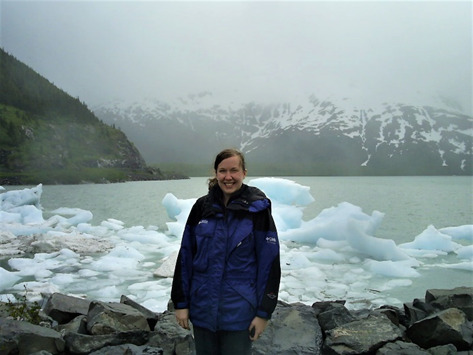
We’re all familiar with the traditional career path. You start a job at an entry-level position, and, if you’re lucky, one day your manager retires and then you become manager. But that model is outdated and limiting. Imagine if instead you could work with people from different areas of your company, at all levels; have one if not many mentors personally invested in your success; and explore completely different career paths as your interest in new things grows and you become proficient in new skills. What if all you had to do to create your own journey was raise your hand as new opportunities arose?
Our TSSC contract—more formally Federal Aviation Administration Technical Support Services Contract—is just one example of a Parsons job that launched many people in our company into leadership positions they never would’ve envisioned when they first started. The contract encompasses responsibility for program performance and client relationships across the FAA’s 12 regions and more than 450 airports throughout the US and its territories. The program’s primary goal is to support our nation’s evolution to a satellite-based navigation system as well as to maintain the critical functionality of our national airspace system.
Our TSSC contract is just one example of a Parsons job that launched many people in our company into leadership positions they never would’ve envisioned when they first started.”
Take Darnell Wagstaffe, who began on TSSC back in 2007, for example. Darnell believes that encouragement from leadership, internal programs designed for career growth, and teamwork are the driving factors for upward mobility at Parsons. And, when presented with a new challenge, he’s the first to raise his hand.
Now the senior vice president leading the TSSC contract as the national program manager, as well as the federal aviation sector manager, Darnell manages and runs the TSSC program, overseeing 11 regional managers and their functional support staff, and helps our business development groups identify new federal aviation opportunities.

Darnell hasn’t always served in management positions. He actually began his career as an electrical engineer. One of the great things about Parsons, Darnell says, is that “when I told somebody I was an engineer but wanted to be a project manager, no one told me that was ridiculous. Instead, they said, ‘Okay, this is what you need to do.’ Then they gave me the tools to do just that. Executive leadership has always encouraged transferring your skill sets to new jobs.” That’s part of Parsons’ leadership development philosophy, which has supported Darnell’s participation in programs that enabled him to do everything from learning basic skills, like negotiation, delivering formal presentations, and analysis of financial data, to assessing companywide issues, like how to bring our vertical construction capabilities from MEA into the US and how to export our transportation capabilities from the US to MEA.
Darnell fondly recalls a time in one such program. “We worked together as a team to formulate a plan of action, present our ideas to executives, and evaluate the results of our strategy.” A testament to the lasting value of that kind of collaboration is that Darnell still calls his teammates today, because their unique perspectives and subject matter expertise help him make the best decisions to solve complex problems.
Brett Shank is another TSSC contract alum who’s experienced tremendous career growth. He began with the TSSC program as an intern. Coincidentally, it was Darnell who Brett interned for. He says, “I consider Darnell family. He’s someone I can always call and rely on to give me an unbiased answer that’s in my best interest.”
Brett, who’s now a vice president and the business development lead for our aviation sector, explains that TSSC, like many of our other programs, is responsible for incredible opportunities for career growth because it’s so broad. He explains, “It’s not just a construction management role; it’s procurement, it’s commissioning and closeout, it’s as built— it’s the entire project life cycle.” Being exposed to all aspects of a capital improvement project, from inception to commissioning and closeout, enables employees to discover the work they most prefer.

Like Darnell, Brett has benefitted from our internal development philosophy, as well as our mentorship program, and from all the networking opportunities the TSSC program has afforded him. Someone he worked with on that contract got him into business development to begin with. He received guidance from the regional program manager for the Western Pacific region, enabling him to take over her role. And the network he was exposed to by being invited as a young, early career professional to attend the Construction Management Association of America conferences remains a source of support.
Brett says, “All those things combined are some of the best investments that Parsons has made in its employees. It’s fantastic, and I attribute a lot of what I consider a successful career to the investment that Parsons has made in me.”
I attribute a lot of what I consider a successful career to the investment that Parsons has made in me.”
Melissa Kletzker, who also worked on the TSSC contract, in HR, echoes Brett’s and Darnell’s experience with career growth. “I’ve never been told no when I’ve had an idea for how to make something better. And when things come around, like our Diversity, Equity, and Inclusion Council, I raise my hand and say, ‘Can I be part of this?’ ‘Can I help shape, create, and develop this, even if it’s outside of my typical job duties?’”
Because of the diversity of TSSC, Melissa has gone from supporting a project, to supporting a sector, to supporting a business unit, and now supports the enterprise. She’s been able to grow in her career from her initial HR function to the vice president of Internal Communications. “When I was part of the TSSC contract, I sat in on leadership meetings with the finance team and the safety team and the contracts team, so I picked up a lot more than just HR. I learned how all those functions intersect to make a program successful and profitable,” she explains.
Melissa was also given the opportunity to spend some time leading our Learning and Development team, where she gained a thorough understanding of how best to support a corporation at the enterprise level. She’s also had the opportunity to develop and lead initiatives that were not part of her job description, like the Parsons Fellows Program and our philanthropic program, Parsons Gives Back.
“TSSC is an example of a Parsons job where people can grow beyond the project. At a lot of organizations, you were either hired for this job or for this contract or scope. At Parsons, our leadership challenges and enables you to reach beyond your defined role and seek out new experiences that may launch you into a new position,” says Melissa.

At Parsons, our leadership challenges and enables you to reach beyond your defined role and seek out new experiences that may launch you into a new position.
The TSSC contract—and the success stories that have emerged from it—has proven that it’s possible chart your own career path here at Parsons. All you really have to do is remain curious, make friends, and be willing to learn. You’ll find the support you need, and you’ll have plenty of people invested in your personal happiness and growth who will guide you on your journey. Just be sure that when new opportunity strikes, no matter which direction it comes from, you’re the first to raise your hand.